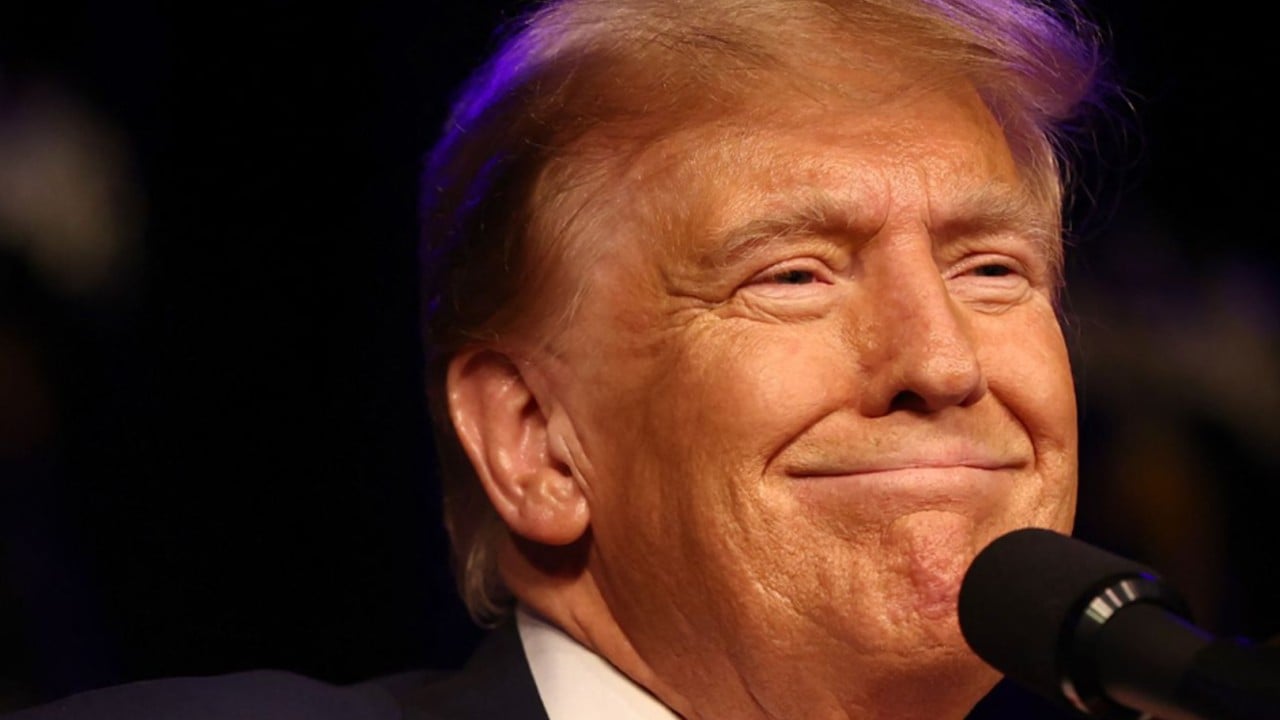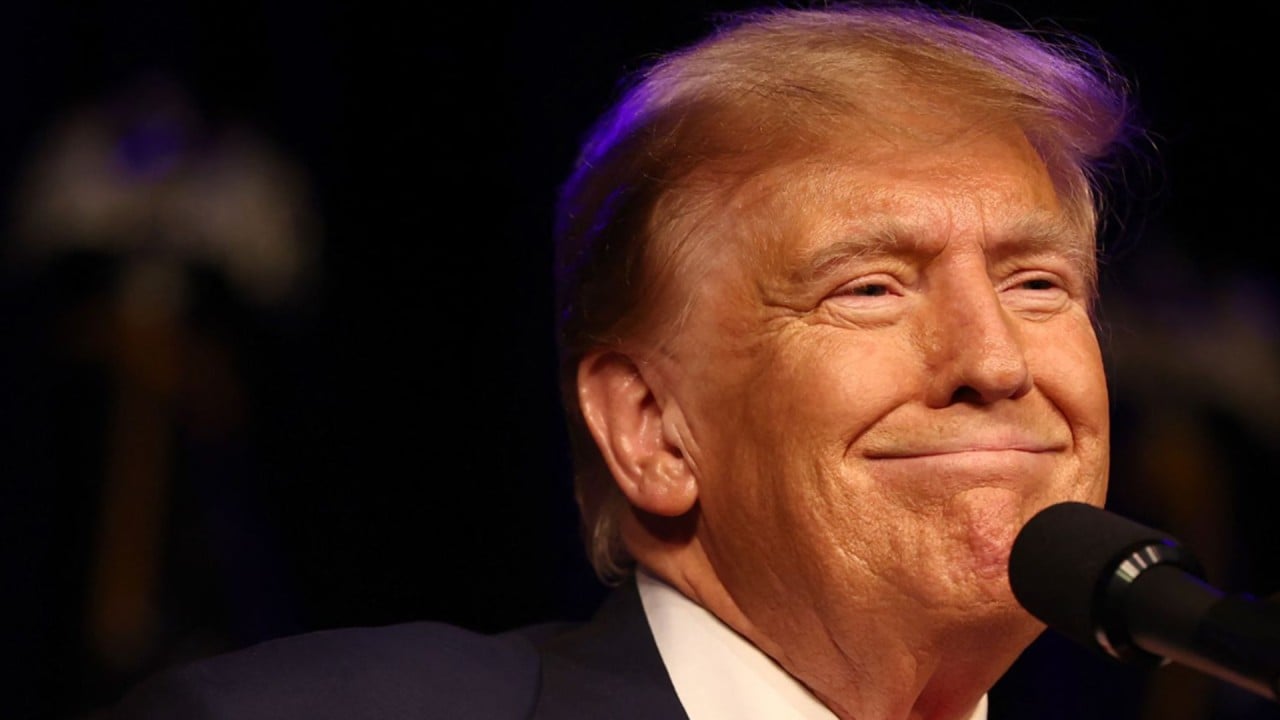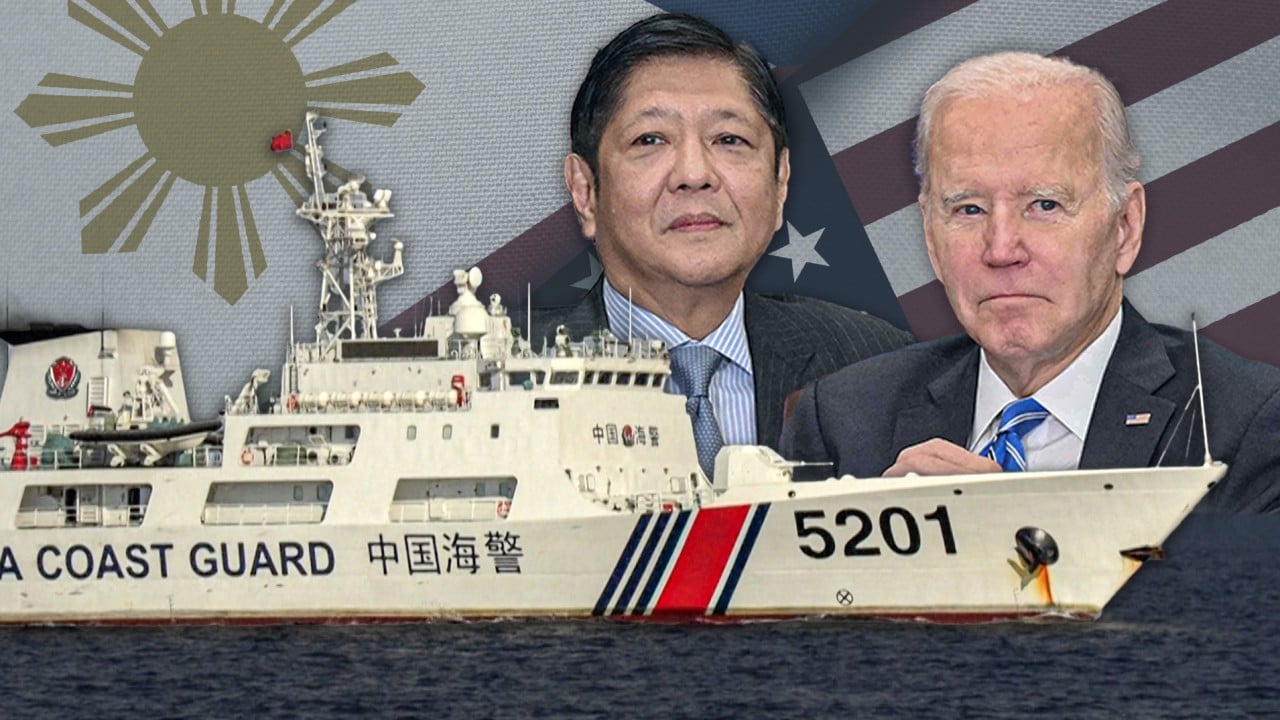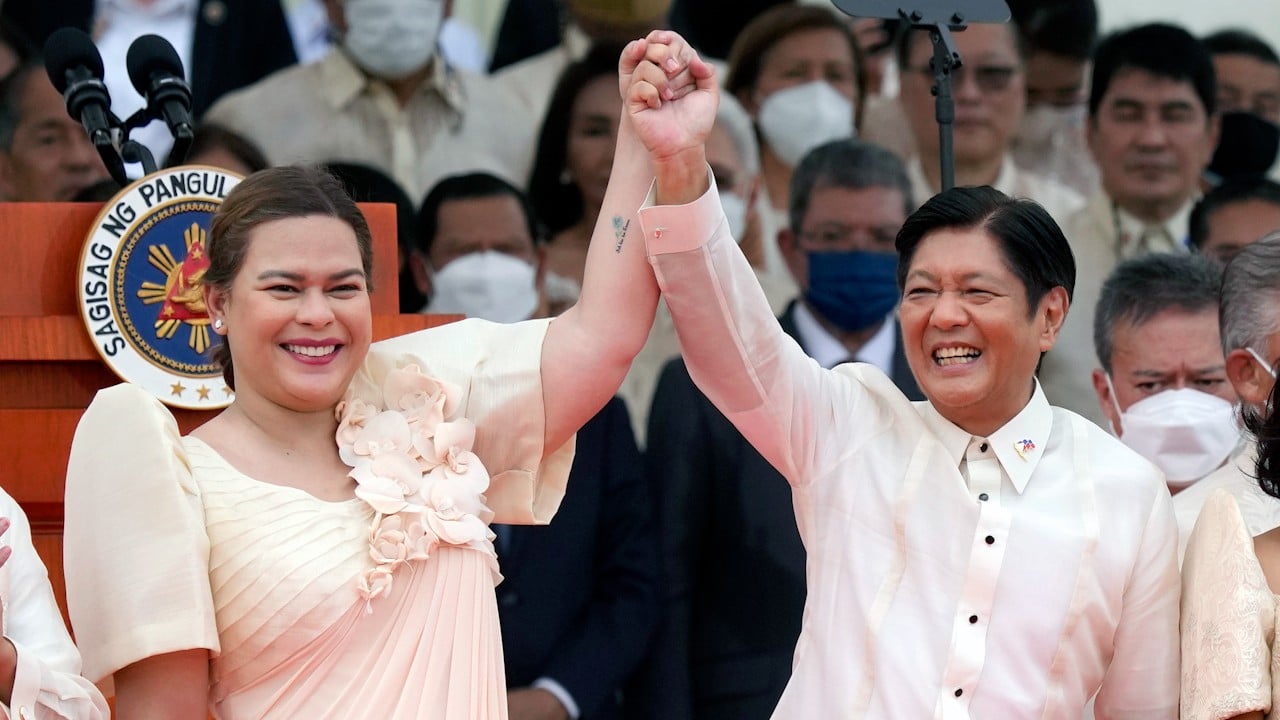The Philippine ambassador to the United States has reassured that bilateral relations between the two countries would remain strong should Donald Trump win the US presidential election in November, a view supported by many analysts who see it aligning with Trump’s aggressive stance towards China.
However, some experts cautioned that there could be major shifts under a second Trump administration, including troop withdrawals and changes to mutual defence agreements, underscoring the unpredictability of Trump’s potential policy agenda and its impact on strategic alliances in the Indo-Pacific.
Ambassador Manuel Romualdez said on Tuesday that the results of the elections between President Joe Biden and Trump would hardly have an effect on bilateral ties between Manila and Washington, noting that Biden has “only continued” his predecessor’s foreign policy towards the Indo-Pacific region and the South China Sea.
“We are confident that there will be no new major changes,” Romualdez said, as quoted by the Manila-based Daily Tribune newspaper.
Is the Philippines becoming a US ‘proxy’ against Beijing in the South China Sea?
Is the Philippines becoming a US ‘proxy’ against Beijing in the South China Sea?
Trump’s administration rejected China’s territorial claims in the South China Sea delineated by Beijing’s historical nine-dash line, which includes much of the West Philippines Sea (WPS) – Manila’s term for the section of the South China Sea that defines its maritime territory and includes its exclusive economic zone.
The former president’s administration also promised to defend the Philippines from any “armed attack” in the South China Sea based upon the two country’s mutual defence commitments, a promise that has been reiterated by Biden’s administration.
However, Trump has also taken an increasingly critical stance towards other mutual defence agreements, even “encouraging” Russia to attack members of Nato who had not met their financial obligations during a February campaign speech.
Edmund Tayao, a political analyst and professor at the San Beda Graduate School of Law in Manila, said the situation in the Pacific had changed significantly since Trump was last in office, with China’s efforts to control disputed waterways in the region only growing in scope.
“We are not only talking about the WPS here. In fact, China is engaged in a number of maritime disputes around Asia. Those are very important trading routes that will affect the whole international community. If international trade is significantly affected, then Americans will be affected also,” Tayao explained.
“So even if Trump is not in favour of spending more money on supporting international interests, this time he will have to reconsider because spending will not be limited to international interests,” he told This Week in Asia.
Tayao said that is the reason why Philippine officials like Romualdez are confident that a second Trump administration will not alter its relationship with Manila.
Ramon Beleno III, head of the political science and history department at Ateneo de Davao University in southern Davao City, had a different view, arguing that Trump might well change his foreign policy stances should he return to the White House.
“We know the Republicans are more conservative. If Trump sees China as a threat to his people’s interests, national security and economy, he might think twice about his actions and his government’s military support for the Philippines, which could trigger conflict in the South China Sea. That is the major turning point,” Beleno told This Week in Asia.
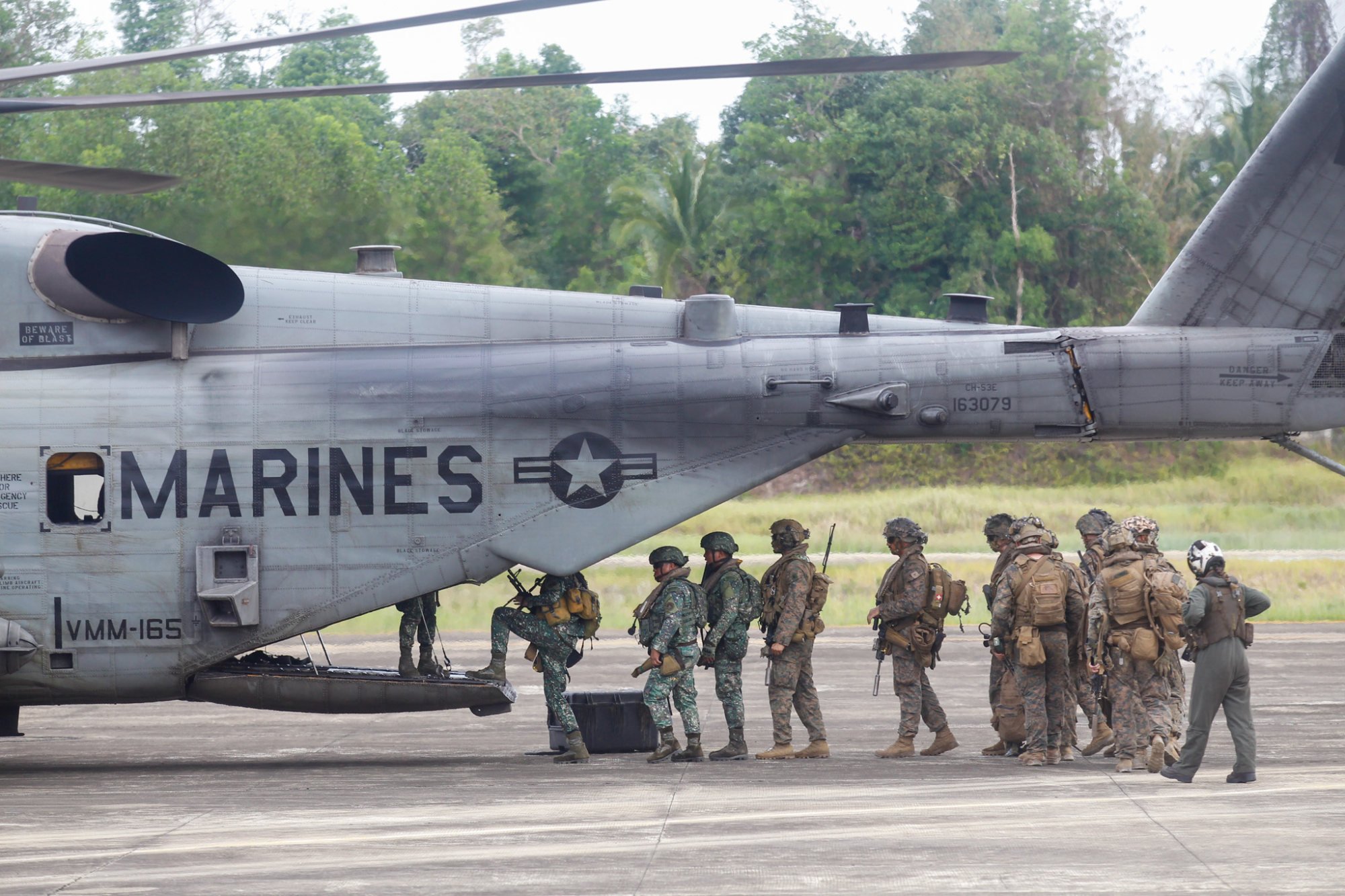
“First, he will think how much will it cost the US if the conflict erupts? He is a Republican. The Republicans would prefer to protect themselves rather than cooperate with other countries,” he added, noting it would be a test of whether Philippines and US bilateral ties are really as ironclad as President Biden says they are.
During his presidency from 2017 to 2021, Trump took a more confrontational stance against mainland China on everything from trade, technology to the South China Sea and Taiwan.
At the same time, his administration also created tensions with Asian allies by threatening to reduce US troops presence in Japan and South Korea, as well as his efforts to build direct ties with North Korea’s Kim Jong-un.
While Trump has reached out to Chinese President Xi Jinping before, Beleno described his actions as being centred on protecting US interests and not its allies.
“He is very protective of US interests. So, in choosing between protecting the Philippines and US interest, I don’t think he will [prioritise] the interests of Manila,” Beleno said.
A Philippine governor opposed US drills. Now he’s been sacked for funds misuse
A Philippine governor opposed US drills. Now he’s been sacked for funds misuse
Asked what might happen should a second Trump administration backtrack on America’s support for the Philippines, Beleno said it could mean US troops pulling out of the country.
In February 2023, the Philippines gave the United States access to four new military sites under the Enhanced Defence Cooperation Agreement (EDCA) between the two countries, a move largely aimed at deterring any potential plan from Beijing to attack Taiwan.
Signed in 2014, EDCA supplements the Visiting Forces Agreement (VFA), a 1999 bilateral pact providing a legal basis for large-scale joint military exercises between the US and Philippines.
“If it will cost them a lot of money, be disadvantageous on their part, and they will end up getting nothing, I would not be surprised if he would pull out their troops,” Beleno said.
“When that happens, it will be difficult for us because we are dependent on them. Unless we get other country’s support. Hopefully, if the time comes when US support gets lukewarm, it will not create a vacuum in terms of military support,” he added.
Last week, the US Congress passed a US$95.3 billion aid package to its allies, including nearly US$4 billion in security assistance to Taiwan, the Philippines, and other Indo-Pacific allies.
With this major new budget allocation for its allies, military historian and defence analyst Jose Antonio Custodio told This Week in Asia he doubted a second Trump administration would decrease its support for Manila.
“We have to remember that even during President Trump’s first term in office, there was continued support for the security and defence requirements of the Philippines,” Custodio said.
Regarding the possibility of Trump pulling troops out of the nine EDCA military encampments across the country, Custodio said that would only happen if Manila’s leadership demanded it.
“When [former president Rodrigo Duterte] threatened to abrogate the VFA, Trump was not affected by it and commented that it would save the US a lot of money,” Custodio said.
“So, it is not going to come from the side of the US but from the Philippine side. Still, it is not expected that President Marcos Jnr will go the way of Duterte, so a second Trump administration will not cause disruption between the two allies,” Custodio said.
Philippines president 2028: the prize in Liza Marcos vs Sara Duterte feud?
Philippines president 2028: the prize in Liza Marcos vs Sara Duterte feud?
Custodio noted that, even after Duterte threatened to abandon the VFA, bilateral cooperation between the two countries armed forces continued unabated.
“So now with President Marcos Jnr, who has brought the Philippines and the US closer to each other compared to [when Duterte was in office], it is doubtful that a Trump administration will suddenly turn its back on Manila,” he said.
“Trump would most likely request that the Philippines would step up its mutual defence responsibilities and that would mean guaranteeing US access and increasing Philippine defence expenditures,” Custodio said.
If Trump were to take any different foreign policy approaches during a second term in office, it would be adopting a stronger stance against China, argued political analyst Sherwin Ona, an associate professor of political science at De La Salle University in Manila.
“If the Philippines shows weak resolve, then this might result in a lesser appetite from our allies, be it Trump or others,” said Ona, who is also an auxiliary officer in the Philippine coastguard.
If Trump wins, Ona said the US’ presence in the country would likely remain as pulling troops out would severely damage their credibility worldwide.
Ray Powell, a retired US Air Force officer who is now a maritime security analyst, urged Marcos Jnr to conduct early outreach to cement his relationship with Trump in case he wins a second term.
“I think what we observed during the first Trump administration indicates we should not expect a radical change from the Biden administration in its policy toward the Philippines and the West Philippine Sea. In fact, the first official to clarify US policy toward the Mutual Defence Treaty as extending into the West Philippine Sea was President Trump’s Secretary of State Mike Pompeo,” Powell said.
“Rhetorically, you may see a de-emphasis on the value of alliances – especially America’s Nato alliance, since Donald Trump previously made clear that he believed the European allies needed to carry a greater share of the financial commitment. However, he did not use similar language toward Manila, even when then-President Duterte was agitating against the US and the VFA,” he added.


